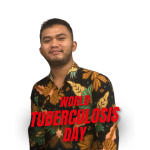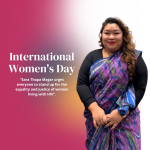In 2022, the worst economic crisis in more than 70 years hit Sri Lanka from multiple sides. The South Asian country is reeling from shrinking supplies of essential commodities and mounting citizen anger. The reason is, the foreign currency reserves that the country can use have been drastically reduced. Sri Lanka is struggling to repay loans or import needed supplies.
Long lines outside gas stations and rolling blackouts are common sights. The frenzy of agitated residents then erupted into massive demonstrations. Protesters expressed despair over their living conditions as never imagined before starting from the lack of food, fuel, to medicine.
Currently, the Asia Pacific Network of People Living with HIV (APN+), the only regional PLHIV network in Asia-Pacific is working with its network members in both Sri Lanka through Lanka Plus and India through National Coalition of People Living With HIV in INDIA (NCPI+) and the Assam Network of Positive People (ANP+) to help solve life-saving antiretroviral (ARV) medicines stock vacancies in Sri Lanka.
Depleted supplies of medicines have prompted a number of government hospitals to take drastic measures. Some of these health facilities were forced to suspend all routine operations because they did not have supplies of medicine and other health equipment. Health care providers in Sri Lanka are also finding a shortage of vital medicines for new born children living with HIV/AIDS. It then asked families who need ARVs for their children to seek the drug themselves.
Field Coordinator of Lanka Plus (National Network of People with HIV in Sri Lanka), Tiran Peiris, mentioned that this condition is very worrying.
“The situation is very severe now to respond to the crisis situation. We need immediate assistance, namely 50 bottles of children’s ARVs. In addition, Sri Lanka also faces the risk of running out of stocks over the next few months.”
“Sri Lanka is unable to import the necessary ARV drugs due to the economic crisis. Also, public and private sector importers are not interested in importing these drugs because the volume is not enough to give them a significant profit.”
In the midst of drug scarcity, many PLHIV are given alternative ARV drug combinations that can cause a decrease in resistance to opportunistic infections and that can also cause side effects.
The HIV epidemic has been under control in Sri Lanka until now, and some of the contributing factors are the availability of antiretroviral drugs, access to these drugs and literacy about ARVs among many PLHIV. The shortage of these antiretroviral drugs, if prolonged, will cause an increase in the re-suppressed viral load among PLHIV and may even lead to an increased risk of new transmission. Many PLHIV come from financially disadvantaged backgrounds and the impact on their health will add to their woes exacerbated by the country’s economic crisis. Many people living with HIV who used to receive doses for a month are now given doses many times a month, with each only enough for a few days. This means that they have to make several trips to the clinic instead of one trip per month. This causes a lot of problems as they have to incur expenses for traveling and may also have to take time off from work at all times.
APN Plus is currently facilitating emergency relief with member organizations in India, namely the National Coalition of People Living With HIV in INDIA (NCPI+) and the Assam Network of Positive People (ANP+) to help address this crisis. Through a letter issued by the National STD/AIDS Control Programme (NSACP) Sri Lanka aimed at asking for donations of ARV drugs for new born children with HIV in Sri Lanka.
“We are really grateful that we could help in the stock-outs of ARV medicines in Sri Lanka. We already knew about this when Lanka Plus brought up the issue at APN+ Annual General Meeting (AGM) last February, and we offered to help. After we got back to our respective countries, Lanka Plus sent coordinated with the Sri Lankan government and sent us an official letter of request for ARV medicines, and we proceeded immediately to process the request. It took some time, however, for the drugs to be shipped because the process involves export of drugs. These medicines from the Indian government are free to be used by Indian people, but the Sri Lankan government needs to pay for courier fees.” Said Jahnabi Goswami of ANP+.
Lanka Plus is Sri Lanka’s oldest HIV/AIDS organization, has a 25-year relationship with NSACP and has worked together on many occasions to provide many services to the PLHIV community in Sri Lanka. In addition to the efforts currently being made with network partners, APN+ also calls on potential donors, both private and international, to approach Sri Lanka’s National STD/AIDS Control Programme (NSACP) under the Ministry of Health and propose to contribute to the procurement of ARV drugs.




